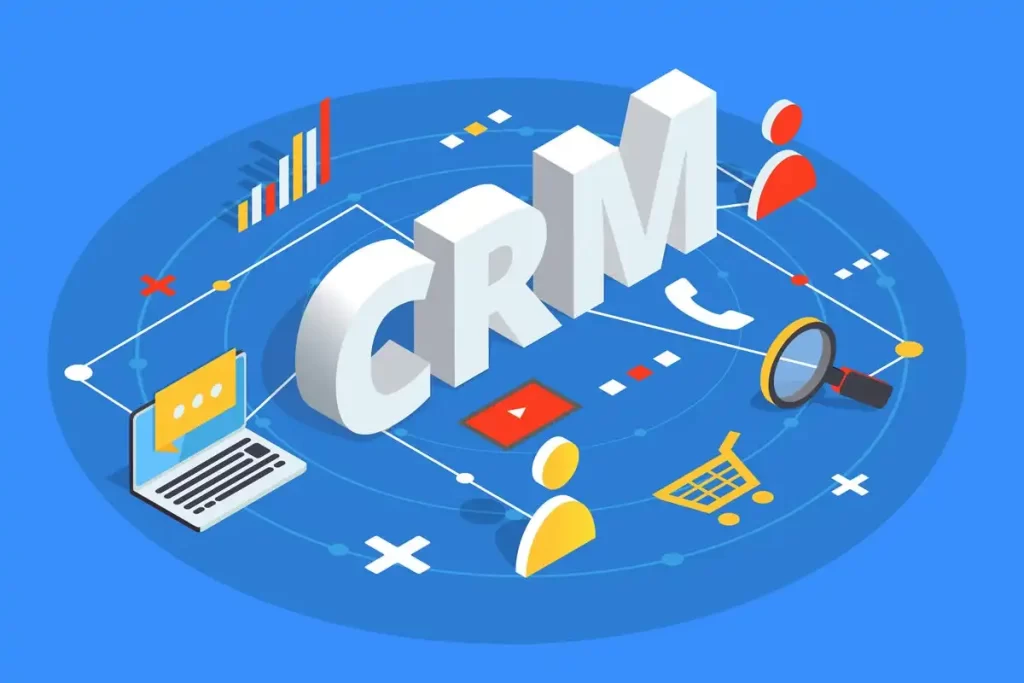CRM Development: A Strategic Approach for Better Customer Relations

In an era characterized by hyper-competition and the ever-evolving preferences of consumers, fostering and nurturing robust customer relationships is a pivotal objective for businesses. CRM (Customer Relationship Development) stands as an intricate and multi-faceted approach that harnesses the potential of technology, data, and strategic processes to optimize customer interactions and build lasting, profitable relationships. This extended exploration will unveil the multifaceted layers of CRM Development, highlighting its profound impact on customer relations. Keep reading!
Table of Contents
Impact of CRM on Customer Relations
Let’s delve further into the impact of CRM on customer relations:
Customer Segmentation and Targeting
Segmentation is the linchpin of effective CRM Development. It involves categorizing customers into distinct groups based on various criteria, such as demographics, behaviors, or purchasing patterns. Through segmentation, businesses can create more tailored and relevant marketing strategies. Messages, content, and promotions can be personalized to meet the distinct needs and preferences of each segment, resulting in higher engagement and customer satisfaction.
Data Centralization and Integration
At the heart of CRM Development lies the collection, centralization, and integration of customer data. Businesses acquire vast amounts of data through various customer touchpoints – from sales transactions and customer inquiries to social media interactions. CRM centralizes this wealth of data into a single repository, providing a holistic view of each customer. Moreover, integrating CRM development services with other core business systems like marketing automation and sales tools ensures seamless data flow. This interconnected approach minimizes data silos, thereby fostering a synchronized and well-informed organizational culture.
Personalization at Scale
In the digital age, personalization is not merely a luxury but a necessity. CRM systems excel in personalization, using the rich data they house to offer customized experiences. From recommending products that align with past purchases to delivering tailored content based on browsing history, CRM-driven personalization strengthens customer loyalty. Customers are more likely to feel valued and appreciated when they perceive that their individual preferences are not just acknowledged but anticipated.
Analytics and Insights for Informed Decision-Making
CRM systems offer powerful analytics and reporting tools. By sifting through the troves of customer data, businesses gain invaluable insights into purchasing patterns, product preferences, and emerging market trends. These insights are the bedrock of data-driven decision-making. They empower businesses to optimize products and services, ensuring they stay in tune with customer needs and expectations. Moreover, by analyzing historical data, CRM systems can predict future customer requirements, helping businesses remain proactive rather than reactive.
Enhanced Customer Support and Service
CRM Development isn’t limited to marketing and sales; it has a profound impact on improving customer support and service. With access to a comprehensive customer history, support agents can address inquiries and issues more efficiently. Informed agents can offer personalized assistance, which translates to higher customer satisfaction and loyalty. This human touch in customer service, powered by CRM, can convert even the most dissatisfied customers into loyal advocates.
Automation for Operational Efficiency
One of the significant benefits of CRM Development is process automation. It’s not limited to automating repetitive tasks but extends to customer interactions, marketing, and support. Automated email marketing campaigns, for instance, can be precisely scheduled and personalized based on customer behaviors and preferences. AI-driven chatbots, powered by database development services, provide quick and accurate responses to customer queries, enhancing user experience.
Sales and Lead Management
CRM Development equips sales teams with indispensable tools for managing leads, tracking sales opportunities, and assessing the effectiveness of their strategies. The system aids in organizing sales efforts, following leads through the sales funnel, and measuring the success of sales campaigns. This structured approach results in a more streamlined and efficient sales process, ultimately leading to revenue growth and higher customer satisfaction.
Feedback Loop and Continuous Improvement
CRM systems serve as conduits for the collection of customer feedback and reviews. This feedback loop is essential for ongoing improvement. It enables businesses to address issues promptly and adapt to changing customer preferences. By actively listening to customer voices, organizations showcase their commitment to improving their offerings, strengthening the bond between the brand and its customers.
Conclusion
To sum up, CRM Development transcends a mere technological investment; it’s a holistic and strategic approach to managing customer relationships. Centralized data, personalized interactions, streamlined processes, and data-driven insights are the cornerstones of a successful CRM strategy. When executed effectively, CRM can elevate customer satisfaction, foster loyalty, and drive business growth. It is the quintessential asset in the dynamic landscape of modern commerce, designed to cultivate enduring and mutually beneficial relationships between businesses and their customers.




